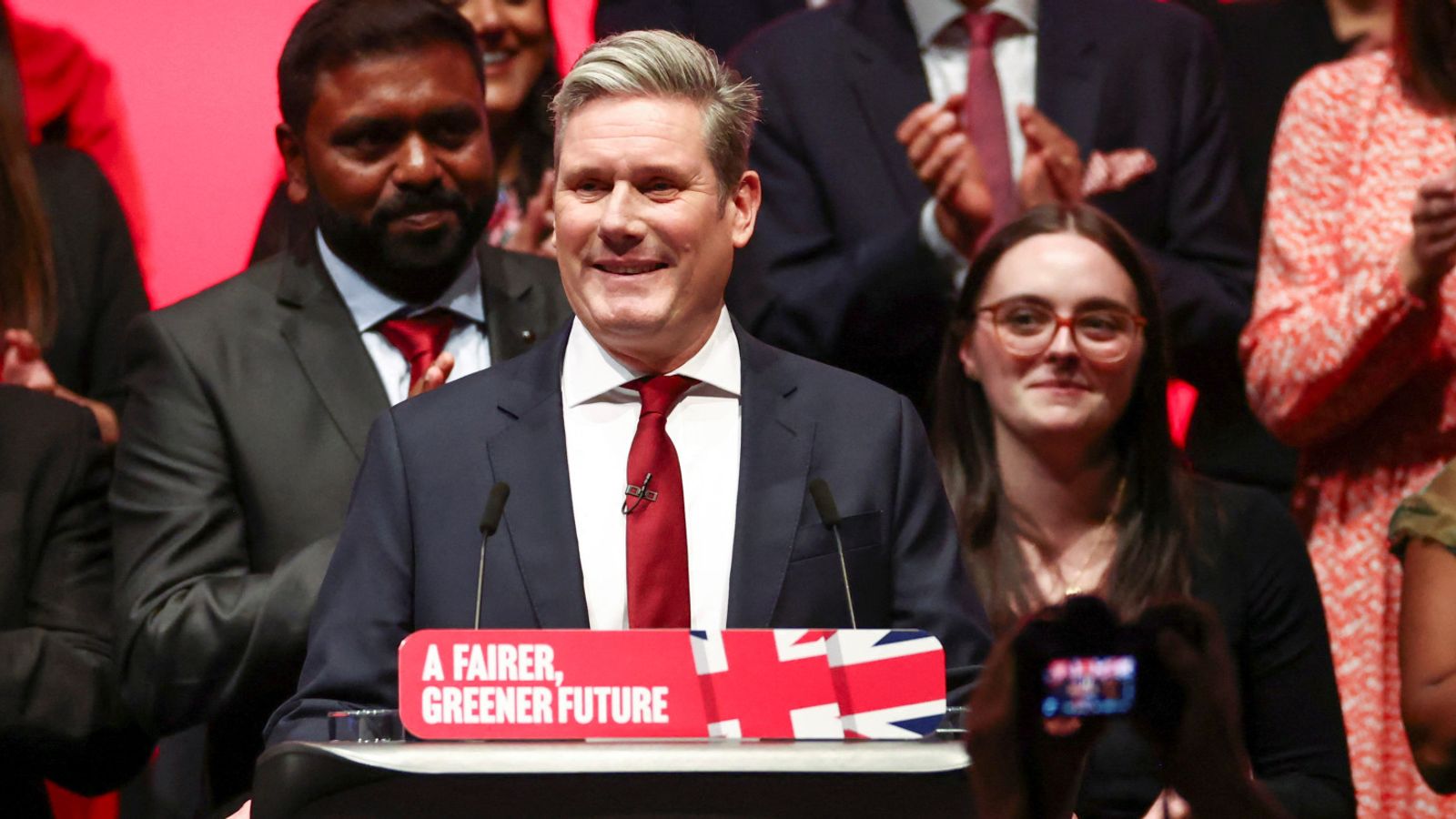Labour surges to record leads in polls as Truss insists mini-budget did not cause economic turmoil

Labour has surged to record leads in multiple polls following the economic turmoil after the government’s mini-budget.
A YouGov/Times poll placed Labour 33 points ahead of the Conservatives, believed to be the largest lead for Labour in any recorded poll since 1998.
And a Survation poll had Labour on a 21 point lead – also the largest Labour lead the pollsters have ever recorded. Some 49% would vote for Labour while 28% for Conservatives, the survey found.
A Deltapoll/Mirror poll put Labour 19 points ahead of the Tories, with 48% of voters from Tuesday to Thursday saying they would vote for Labour and 29% for the Conservatives.
Much of the YouGov poll’s Labour lead was buoyed by 17% of people who had previously voted for Boris Johnson saying they would now vote for Labour – double that of a week ago.
And 50% of those who voted Lib Dem in 2019 would now vote for Labour, up from 27% at the start of this week.
26% of Tory voters also told YouGov they now do not know who to vote for.
Reacting to the YouGov poll, a Tory MP told Sky News: “You’re bloody joking, that’s annihilation.”
Another said they were “shell-shocked”.
Advertisement
Sir Keir Starmer has enjoyed a bounce following the Labour conference this week, which was generally seen as positive for the opposition leader.
His popularity has boomed even more as the markets continue to react negatively to the chancellor’s £45bn package of tax cuts revealed less than a week ago.
Even since Tuesday, four days after the mini-budget, Labour has continued to gain in the polls.
Thursday’s YouGov poll gave Labour a nine-point boost from a poll it did from last Friday to Sunday, while the Tories went down seven points.
However, in a series of interviews on Thursday – their first since the pound reached a record low on Monday – Liz Truss and chancellor Kwasi Kwarteng doubled down as they blamed global events for the economic turmoil.
The prime minister insisted the government took “decisive action” that will aid growth and said the government had to take “urgent action” to kick-start the economy and protect consumers from rising energy costs.
During a visit to an engine plant in Darlington, the chancellor said the plan is aimed at “protecting people right across the country” and was “absolutely essential” for growth.